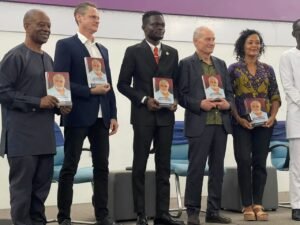
Concerns are growing among Ghanaians and party faithfuls regarding the difficulties faced by the New Patriotic Party (NPP) flagbearer in selecting a running mate. Sceptics have also raised questions about the role and interest of the National Intelligence Bureau (NIB), a state institution that has surveyed party executives nationwide to determine the acceptable candidates to partner with the flagbearer The survey, which uses a small and arguably unrepresentative sample, aims to gauge support of five shortlisted candidates based on their perceived party backing.
However, critics have called this approach unusual, inefficient, and indecisive. Critics argue that this approach lacks robustness and may not yield true representative outcomes, as party membership alone cannot guarantee the party’s victory. It is noteworthy that a candidate who enjoys popularity within the party but lacks acceptance among floating voters and non-members cannot be the ideal choice.
Indeed, this process appears unconventional and counterproductive, as it reflects indecisiveness and superficial efforts rather than substantive strategy. Despite challenges such as voter apathy and dissatisfaction, party loyalists are likely to support the flagbearer regardless of their running mate. Therefore, the flagbearer must choose a running mate who can attract political support beyond the NPP’s traditional base, thereby enhancing the party’s prospects in the general election.
An ideal running mate should appeal to both the party’s loyal and undecided voters, as well as those outside the party. Party members may perceive a candidate as well-liked, but they may not accept him or her among floating voters and non-members, making him or her an ideal choice.
The flagbearer’s ability to secure victory hinges on identifying crucial constituencies. These areas can significantly impact electoral outcomes.
Considering the Chief of Staff as a potential running mate could enhance the chances of a resounding victory since she represents and belongs to multiple constituencies.
The selection team should endeavour to rely on thorough academic research and unbiased analysis to provide him with credible, objective insights, rather than opinions driven by self-interest. Such a strategy will better serve the party’s goal of securing a broad base of support.
Prof. Joseph Danquah
University of Bradford , UK






